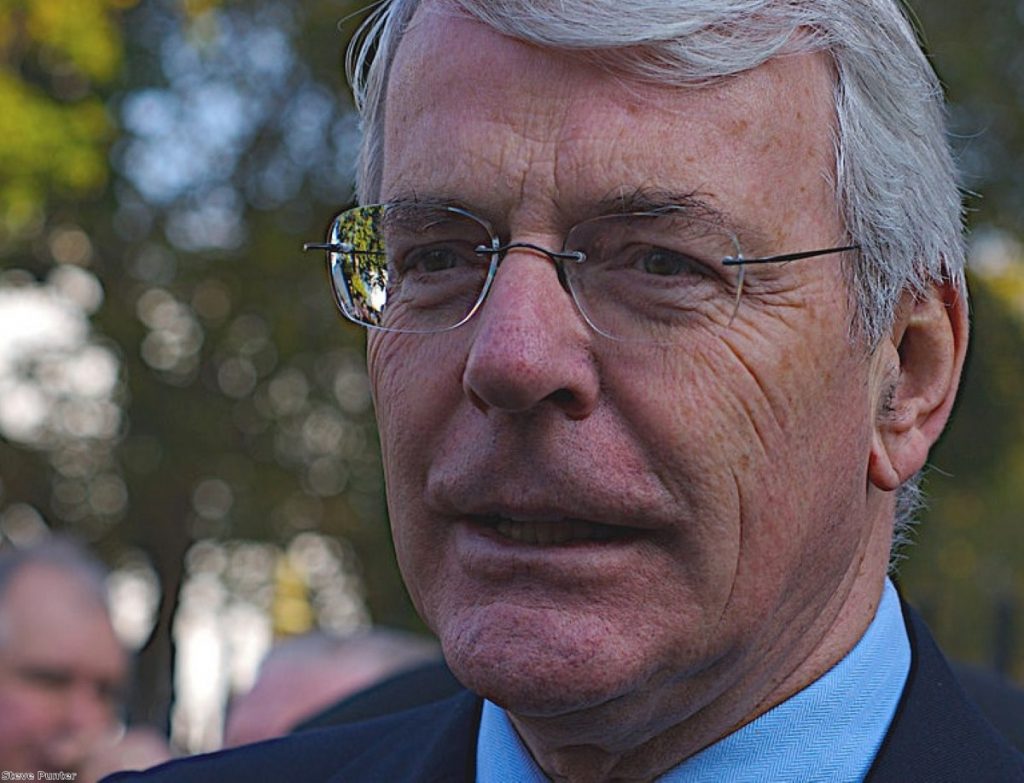Why doesn’t Miliband talk about Europe like this?
Sir John Major has painted a striking picture of an irrelevant, smaller Britain outside the European Union. Why doesn't Miliband talk about Europe like this?
Defending the European Union against Ukip's surge in the polls is a risky business. Nick Clegg tried it in a series of televised debates earlier this year; his party crashed and burned in the European elections that followed. Ed Miliband has obfuscated over a European referendum for years; now he is offering only tentative signs that he may be willing to make the case for Europe.
This is why Sir John Major, who as a former prime minister has exactly nothing to lose, is emerging as one of the most effective defenders of the European Union in Britain today. His interview on BBC1's The Andrew Marr Show this morning saw him agree to the need for a curb on the "numbers, numbers, numbers" of new arrivals coming to Britain from elsewhere in the European Union. It also saw him predict confidently that officials in Brussels would work out a way of meeting Britain's concerns. "The EU has a very pragmatic record of finding a way around difficult corners like this," he said.
With that dealt with Major took the fight to senior politicians like the foreign secretary, Philip Hammond, who has persistently suggested Britain could be prepared to realistically threaten to quit Europe if it did not get its way.


What followed is, unusually, worth quoting in full. This is Sir John Major's take on the kind of future Britain could look forward to if it left the EU:
"It would be a lesser future. The belief we would be economically free if we left, that we could just trade with the EU as before – we would have to pay for entry to the single market and we'd have to accept their regulations.
"I wouldn't like to be the British prime minister ten, 15 years from now who'd have to stand up in parliament and say 'in order to continue to trade with the European Union we have to pass the following regulations into which we have had no input' – I wouldn't like to do that.
"I wouldn't like to be the British prime minister who said we're no longer getting the inward investment we're used to, it's now going to Germany, France and Italy.
"And on a political level, I really wouldn't want to be the British prime minister that would have to explain we're sinking to a much lower level of relevance in the world outside the European Union, with the doors in the corridors of power being closed to us.
"On every count, despite all the frustrations, of which there are many, despite the reforms we need which are many, we are far better off in the European Union than outside it. And most important of all, we are far better off for the next generation and the generation after that if we are in.
"Britain has been a great nation in the last 300 years. Do we really want to sink to a lower level of relevance outside the European Union? Of course we'd survive, of course we would. And how frustrated would we be when our word meant so much less and our economic power was materially decreased?"
But voters don't want to listen to an ageing, grey-haired man who wears light-blue socks with aplomb. They want to listen to the politics of the pubman. In fact Major alluded to this – "the negativity of the Four Ale Bar" – as he attacked Nigel Farage's Ukip as being "profoundly un-British in every way".
This looks like being the reason why Ukip are going to win the Rochester and Strood by-election hands down this week. Voters choosing the "sheer nastiness" of Ukip, Major said, was what happens when people get "frustrated".
Westminster has already accepted the arrival of a second Ukip MP is now unavoidable. The Conservative party, like the EU, is nothing if not pragmatic. What now matters is its response to Ukip's success and the continued threat Farage poses as next year's 2015 election looms.
The fear is that Major's comments, however courageous they may be in declaring a willingness to fight Ukip head on, will not be viewed as the best template to campaign on by many of the Tories' worried right-wing eurosceptics – or by the Labour politicians facing a Ukip threat in the north of England.

